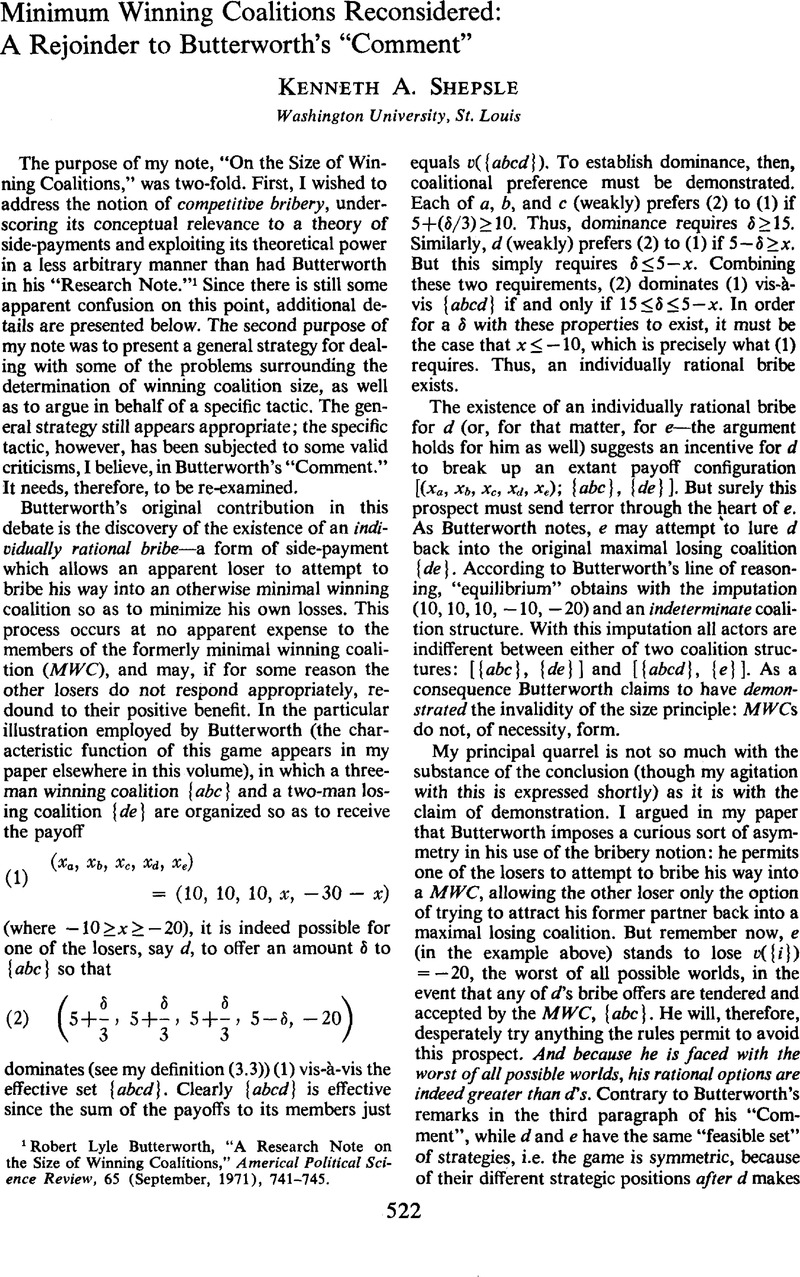Article contents
Minimum Winning Coalitions Reconsidered: A Rejoinder to Butterworth's “Comment”
Published online by Cambridge University Press: 01 August 2014
Abstract

- Type
- Articles
- Information
- Copyright
- Copyright © American Political Science Association 1974
References
1 Butterworth, Robert Lyle, “A Research Note on the Size of Winning Coalitions,” Americal Political Science Review, 65 (09, 1971), 741–745 CrossRefGoogle Scholar.
2 Although I did not consider the prospect in my paper, Mr. e has yet another strategic alternative, namely to attempt to convince two of the previous winners to form a new MWC. In this case he has 30 points with which to play—20 he would otherwise lose plus 10 he would receive as a member of a MWC. More on this shortly.
3 It must be noted, of course, that the ceteris paribus assumption may be inappropriate. Thus, despite the existence of forces that produce MWCs, these forces and their effects may well pose empirical problems.
4 Insights from the size principle about the process by which conflicts are resolved, however, may be quite rich.
5 We can probably eliminate B entirely for it is highly improbable that any loser would willingly permit a coalition partner to secure all the “gains from trade.”
6 There is a third, less compelling, probabilistic justification for expecting an element of A to emerge. Barring unusual probability distributions, all of the probability measure on A ∪ B ∪ C falls on A. B and C, being finite sets, are sets of measure zero.
7 See Vickrey, William, “Self-Policing Properties of Certain Imputation Sets,” in Contributions to the Theory of Games, IV, ed. Tucker, A. W. and Luce, R. D. (Princeton: Princeton University Press, 1959), pp. 213–246 Google Scholar.
8 See Riker, William H., “Bargaining in a Three-Person Game,” American Political Science Review, 61 (09, 1967), 642–656 CrossRefGoogle Scholar. Relevant discussion is found at pp. 651–53.
9 It follows from my comments in footnote 25 of my previous essay that if condition (5.2′) is imposed, instead of (5.2), in which case all extant coalitions and all subsets of those coalitions receive their value, then the size principle is an immediate consequence. Professor Richard McKelvey has recently called this fact to my attention and plans to report a formal demonstration of this result.
- 3
- Cited by




